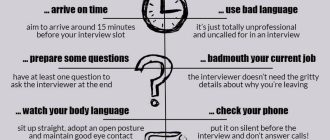
Can You Sue Your Insurance Adjuster? The Legalities Explained.
When it comes to dealing with insurance claims, it can be frustrating if you feel like your insurance adjuster is not treating you fairly. You may wonder if you have any legal options to pursue. Can you sue your insurance adjuster? Let’s dive into the legalities involved.
Understanding the Role of an Adjuster
An insurance adjuster is an individual who evaluates insurance claims on behalf of the insurance company. Their role is to assess the damages, investigate the circumstances of the claim, and determine the appropriate payout to the policyholder.
When Can You Sue?
While it is uncommon to sue insurance adjusters directly, there are situations where it may be possible. If the adjuster’s actions constitute bad faith or negligence, you may have grounds for a lawsuit. Examples of situations where suing may be possible include:
1. Denying a valid claim without proper investigation
2. Delaying the claims process without reasonable justification
3. Misrepresenting policy terms and coverage
4. Failing to disclose relevant information
Proving Bad Faith or Negligence
To succeed in a lawsuit against your insurance adjuster, you will need to prove that their actions were in bad faith or negligent. This typically requires demonstrating:
- The adjuster owed you a duty of good faith and fair dealing
- The adjuster breached that duty by acting in bad faith or negligently
- You suffered actual damages as a result of the adjuster’s actions
Consulting an Attorney
If you believe you have a valid case against your insurance adjuster, it is essential to consult with an experienced attorney who specializes in insurance law. They can help evaluate your situation, guide you through the legal process, and fight for the compensation you deserve.
Remember, suing your insurance adjuster should be a last resort. It is generally better to attempt to resolve any disputes through negotiation or alternative dispute resolution methods. However, if all else fails, understanding the legalities involved can help you make an informed decision.
Can You Sue
If you have ever found yourself in a situation where your insurance adjuster has caused you distress or failed to deliver on their promises, you may be wondering if you can take legal action. When it comes to dealing with insurance matters, it’s essential to understand the legalities involved.
Insurance adjusters play a crucial role in the claims process. They evaluate and negotiate insurance claims on behalf of the insurance company. While their purpose is to assess damages, investigate accidents, and determine settlements, there are instances where things can go wrong.
It’s important to note that not every negative experience with an insurance adjuster warrants a lawsuit. However, if you believe that the adjuster’s actions or negligence have caused you harm or prevented you from receiving the rightful compensation, you may have grounds for legal action.
Before considering a lawsuit, it is advisable to attempt alternative solutions such as filing a complaint with the insurance company or requesting a different adjuster. However, if these attempts prove unsuccessful, consulting with a lawyer who specializes in insurance law is a prudent step.
When suing an insurance adjuster, the burden of proof lies with you, the plaintiff. You must demonstrate that the adjuster breached their duty of care and that you suffered damages as a result. Keep in mind that insurance adjusters have legal defenses, such as immunity or qualified privilege, which may impact your case.
Additionally, lawsuits against insurance adjusters can be complex and time-consuming. It’s crucial to have an experienced attorney who can navigate the legal system and represent your interests effectively.
In conclusion, while it is possible to sue an insurance adjuster under certain circumstances, it is essential to understand the legalities involved. Consulting with a knowledgeable attorney can help you determine if you have a valid case and guide you through the legal process to ensure your rights are protected.
For more information on this topic, visit our website – [Website Name].
Insurance Adjuster?
When filing an insurance claim, it is essential to understand the role of the insurance adjuster. An insurance adjuster is the representative of the insurance company responsible for assessing the damage, determining liability, and negotiating settlements. They play a crucial role in the claims process, ensuring that policyholders receive fair compensation for their losses.
However, there are situations where policyholders may find themselves at odds with their insurance adjuster. Sometimes, disagreements arise over the value of the claim, the extent of coverage, or the interpretation of policy terms. In such cases, policyholders may wonder if they can sue their insurance adjuster.
The answer to this question depends on various factors and the specific circumstances of the claim. Generally, insurance adjusters are protected by the legal principles of their roles and responsibilities. They are tasked with fairly evaluating claims based on the policy terms and industry standards.
While policyholders have the right to dispute the adjuster’s decisions and negotiate for a fair resolution, suing an insurance adjuster is uncommon. Legal action against an insurance adjuster typically arises when there is evidence of bad faith or misconduct. This could include intentionally denying valid claims, improperly delaying the claims process, or acting in a dishonest or fraudulent manner.
If you believe that the insurance adjuster has engaged in bad faith practices, it is crucial to consult with an attorney experienced in insurance law. They can guide you through the legal process, assess the merits of your claim, and help you pursue appropriate legal action, if necessary.
It is important to note that the laws governing insurance adjusters can vary from state to state, so seeking professional legal advice specific to your jurisdiction is vital. Understanding the legalities surrounding insurance claims and the role of the insurance adjuster can help ensure a fair and just resolution to your claim.
In summary, while suing an insurance adjuster is not common, it is essential to be familiar with your rights and the legalities involved when dealing with a claim. Consulting with a legal professional can provide valuable guidance and ensure that you are taking the appropriate steps in resolving your claim.
The Legalities Explained
When it comes to dealing with insurance claims, understanding the legalities can be crucial. Many people wonder if they can sue their insurance adjuster, and in some cases, it may be possible. However, it’s important to note that suing your insurance adjuster is not always the best course of action.
Insurance adjusters are individuals who work for the insurance company and are responsible for evaluating and settling claims. They have a legal obligation to act in good faith and handle claims fairly. If you believe your insurance adjuster has acted in bad faith or unfairly handled your claim, you may have grounds to sue.
However, before taking legal action, it’s important to understand the complexities of insurance law and the specific circumstances surrounding your claim. A knowledgeable attorney can help you navigate the legal system and determine the best course of action.
Suing your insurance adjuster can be a lengthy and expensive process, and the outcome is not guaranteed. It’s important to weigh the potential benefits against the costs and risks involved. In some cases, alternative forms of dispute resolution, such as mediation or arbitration, may be a more effective and efficient way to resolve your claim.
Before considering legal action, it’s also important to review the terms and conditions of your insurance policy. Some policies may contain clauses that limit your ability to sue the insurance company or its representatives.
In conclusion, while it is possible to sue your insurance adjuster under certain circumstances, it’s essential to understand the legalities and consider alternative options. Consulting with a qualified attorney can help you make an informed decision and navigate the complexities of insurance law.
Understanding the Process
When dealing with insurance claims, it is important to understand the process to ensure you are properly protected. Knowing the legalities surrounding insurance claims can help you navigate through any potential issues that may arise with your insurance adjuster.
Insurance adjusters are responsible for evaluating and settling claims on behalf of the insurance company. They play a crucial role in determining the amount of compensation you may receive for a covered loss. However, there are situations where you may feel the need to take legal action against your insurance adjuster.
Suing your insurance adjuster can be a complex and challenging process. It is essential to have a strong understanding of the legalities involved to ensure your rights are protected. This includes being aware of the specific laws and regulations governing insurance claims in your jurisdiction.
Before considering legal action, it is important to exhaust all other options available to resolve any disputes or issues with your insurance adjuster. This may include negotiating with the adjuster or seeking mediation or arbitration to reach a fair settlement.
If all else fails and you decide to sue your insurance adjuster, it is crucial to gather evidence to support your case. This may include any correspondence or documentation exchanged between you and the adjuster, as well as any witness statements or expert opinions that can strengthen your argument.
Keep in mind that the process of suing your insurance adjuster can be time-consuming and expensive. Legal fees and court costs can quickly add up, so it is important to weigh the potential benefits against the potential costs before proceeding.
In conclusion, understanding the process of dealing with insurance adjusters and the legalities involved can help ensure you make informed decisions when it comes to your insurance claims. It is always recommended to consult with a legal professional who specializes in insurance law to guide you through the process and protect your rights.
Key Factors in a Lawsuit
In a lawsuit against your insurance adjuster, understanding the key factors can make all the difference. Here are the important legalities explained:
1. Negligence: To successfully sue your insurance adjuster, you need to prove that they acted negligently or breached their duty. This means showing that they failed to handle your claim properly, resulting in harm or financial loss.
2. Evidence: Gathering evidence is crucial in any lawsuit. You need to collect all relevant documents and records that support your claim, such as emails, policies, and photographs. These pieces of evidence will strengthen your case and help prove the adjuster’s wrongdoing.
3. Damages: In order to sue your insurance adjuster, you must have suffered actual damages. This can include medical expenses, property damage, and emotional distress. Calculating and presenting these damages accurately is essential in securing a favorable outcome.
4. Expert Witnesses: Depending on the complexity of your case, you might need expert witnesses to testify on your behalf. These professionals can provide their specialized knowledge and opinions to support your claim and strengthen your argument.
5. Legal Representation: Hiring a skilled attorney with experience in insurance law is highly recommended. They will guide you through the legal process, protect your rights, and ensure you have the best chance of success in your lawsuit against the insurance adjuster.
By understanding these key factors and seeking the right legal support, you can navigate the complexities of suing your insurance adjuster and improve your chances of receiving the compensation you deserve.
Reviewing Your Insurance Policy
When it comes to dealing with insurance claims, understanding the legalities surrounding your policy is essential. Before considering whether you can sue your insurance adjuster, it is crucial to review and fully understand your insurance policy.
Insurance policies can be complex documents with legal jargon that may be difficult to comprehend. However, taking the time to understand the terms and conditions laid out in your policy can prove to be invaluable when it comes to navigating the claims process.
Explained:
By reviewing your insurance policy, you will gain knowledge about the coverage and exclusions that apply to your specific situation. Understanding the coverage limits, deductibles, and any additional riders or endorsements will give you a clear picture of what you can expect from your insurance company.
Furthermore, reviewing the legalities outlined in your policy will help you understand the obligations and responsibilities of both parties involved. This includes your responsibilities as the policyholder and the duties of the insurance adjuster.
Suing Your Insurance Adjuster:
If you believe that your insurance adjuster has acted in bad faith or violated any legal obligations, you may consider pursuing legal action. However, before taking this step, it is important to consult with a qualified attorney who specializes in insurance law.
Your attorney will be able to review your policy, assess the circumstances of your claim, and determine if you have grounds to sue your insurance adjuster. They will guide you through the legal process, ensuring that your rights are protected and that you have the best chance of a successful outcome.
In conclusion, while it is possible to sue your insurance adjuster under certain circumstances, reviewing your insurance policy first is crucial. Understanding the legalities and obligations outlined in your policy will allow you to make informed decisions and take appropriate action if necessary.
Understanding Your Coverage
When it comes to insurance, understanding your coverage is crucial. Insurance adjusters play a vital role in the claims process, and knowing how they function and what their responsibilities are can help you navigate the process.
An insurance adjuster is an individual who works for the insurance company and is responsible for investigating and assessing claims. They evaluate the damages, determine coverage, and negotiate settlements with policyholders.
While it may be tempting to sue your insurance adjuster if you are unhappy with the outcome of your claim, it is important to understand the legalities involved. In many cases, suing an adjuster may not be a viable option.
Before considering legal action, it is essential to carefully review your insurance policy. Familiarize yourself with the terms and conditions, as well as the coverage limits and exclusions. This knowledge will help you understand the extent of your coverage and what you can expect from your insurance company.
If you feel that your insurance adjuster has acted in bad faith or unfairly, you may want to consult with an attorney specializing in insurance law. They can provide guidance on your rights and options moving forward.
Remember, insurance adjusters are trained professionals who are adept at handling claims. While it can be frustrating when things do not turn out as expected, it is essential to approach the situation with a clear understanding of your coverage and the legalities involved.
| Investigate Claims | Thoroughly assess the damages and determine the appropriate course of action. |
| Determine Coverage | Review the insurance policy and determine if the damages are covered. |
| Negotiate Settlements | Work with the policyholder to reach a fair and reasonable settlement amount. |
In conclusion, understanding your coverage is an essential part of navigating the insurance claims process. While suing an insurance adjuster may not always be the best option, it is vital to be aware of your rights and consult with a legal professional if necessary.
Identifying Unfair Practices
When it comes to dealing with insurance claims, it’s essential to be aware of any potential unfair practices by your insurance adjuster. While not all adjusters engage in these behaviors, it’s crucial to know what to look out for. Understanding these practices can help protect your rights and ensure a fair settlement.
One common unfair practice is when an insurance adjuster intentionally undervalues your claim. This can happen if an adjuster downplays the severity of the damages or excludes important factors from their assessment. By doing so, the adjuster may try to diminish the value of your claim and offer a lower settlement amount than what you deserve.
Another unfair practice is when an adjuster unnecessarily delays the claim process. Insurance companies hold a responsibility to process claims promptly and efficiently. However, some adjusters intentionally prolong the evaluation or negotiation stages, creating frustration and anxiety for policyholders. This tactic may be used to pressure you into accepting a lower settlement or abandoning your claim altogether.
Furthermore, an unfair practice can occur if an adjuster misrepresents the terms and conditions of your policy. They may provide inaccurate or misleading information regarding the coverage you are entitled to or the claim process itself. This can lead to misunderstandings and prevent you from fully accessing the benefits you’re entitled to under your policy.
Lastly, it’s important to be aware of any discriminatory practices. Insurance adjusters should treat all policyholders fairly and impartially, regardless of their race, gender, age, or any other protected characteristic. If you believe you’ve been treated unfairly based on any of these factors, it’s crucial to document the incidents and consult with legal professionals.
By understanding and identifying these unfair practices, you can take the necessary steps to protect your rights and ensure a fair and just resolution to your insurance claim.
Collecting Evidence
As you consider your options for suing your insurance adjuster, it is crucial to collect proper evidence to support your case. Adequate collection and organization of evidence can greatly strengthen your position.
Here are some essential steps to follow when collecting evidence:
1. Document the Incident: Take photographs or videos of the accident scene, property damage, injuries, or any other relevant evidence. This visual documentation can serve as compelling proof.
2. Gather Witness Statements: If there were any witnesses to the incident, obtain their contact information and collect their statements. Witness testimonies can provide an objective account of the events.
3. Keep a Journal: Maintain a detailed record of the incident, including dates, times, and descriptions of what happened. This can help you recall important details later on.
4. Preserve Documentation: Keep copies of all relevant documents, such as medical records, police reports, repair estimates, and correspondence with the insurance company or adjuster.
5. Consult Experts: If necessary, consult professionals such as doctors, accident reconstruction specialists, or other experts who can provide objective opinions or analyses related to your case.
6. Maintain Communication: Keep track of all communication with the insurance adjuster, including emails, letters, and phone calls. This can help establish a timeline and provide evidence of any discrepancies or unfair practices.
Remember, collecting evidence is a critical aspect of any legal process. It can significantly impact the outcome of your case concerning suing your insurance adjuster. By gathering and organizing evidence effectively, you can present a strong case and increase your chances of a favorable resolution.
Documenting the Incident
When it comes to dealing with legalities involving your insurance adjuster, documenting the incident is crucial. By carefully documenting what happened during the incident, you can provide evidence and support your claim if you decide to sue your insurance adjuster.
Start by taking clear and detailed photographs of the accident scene, any damage to your property, and any injuries sustained. Make sure to capture different angles and perspectives to provide a comprehensive view of the incident.
In addition to photographs, it is essential to gather any relevant documents related to the incident. This may include police reports, medical records, eyewitness statements, and any communication you have had with your insurance adjuster.
Keep a detailed record of any expenses or losses incurred as a result of the incident. This can include medical bills, repair costs, lost wages, and any other financial impact you have experienced. It is important to have accurate and verifiable documentation to support your claim.
Furthermore, it is advisable to maintain a written journal or log describing the incident and any subsequent interactions with your insurance adjuster. Include dates, times, and details of conversations or negotiations. This will serve as a reliable reference if you need to present a timeline of events.
Documenting the incident thoroughly and organizing all relevant information will strengthen your case if you decide to pursue legal action against your insurance adjuster. It is always best to consult with a legal professional to ensure you are following the necessary steps and protecting your rights throughout the process.
Gathering Supporting Documentation
When considering whether or not to sue your insurance adjuster, it is crucial to gather all necessary supporting documentation. This documentation will play a vital role in supporting your case and ensuring that you have sufficient evidence to prove your claim.
Start by gathering any written correspondence between you and the insurance adjuster. This can include emails, letters, or other forms of communication that detail the interactions you have had regarding your claim. These documents can provide important context and evidence for any potential legal proceedings.
In addition to written correspondence, it is important to compile any relevant insurance policies, contracts, or agreements that may be applicable to your case. These documents will outline the terms and conditions of your insurance coverage and can help determine the responsibilities of the insurance adjuster.
Be sure to gather any receipts, invoices, or bills that are related to the claim. These financial records can help establish the extent of your damages or losses and provide tangible evidence for the compensation you are seeking.
If there were any witnesses to the incident or events surrounding your claim, try to collect their contact information. Witness testimonies can be a powerful tool in supporting your case and providing additional evidence to strengthen your argument.
Lastly, consider collecting any relevant photographs, videos, or other visual evidence that can help illustrate the damages or losses you have experienced. Visual evidence can provide a clear and compelling representation of the impact of the incident and support your claim for compensation.
By gathering all relevant supporting documentation, you can present a strong and compelling case against your insurance adjuster. This evidence will help navigate the legalities of suing an insurance adjuster and increase your chances of a successful outcome.
Filing a Complaint
If you have encountered any issues with your insurance adjuster, you have the right to file a complaint. It is important to understand the legalities involved in this process to ensure you are taking the necessary steps to seek resolution.
When filing a complaint against your insurance adjuster, it is crucial to provide detailed explanations of the issues you have encountered. Clearly outline the problems you faced during the claims process, such as delays, unfair evaluation of damages, or lack of communication.
Make sure to gather all the relevant evidence to support your complaint. This can include any correspondence with the adjuster, documentation of the damages, written reports from contractors or experts, and photographs of the property or items involved.
In addition to documenting the issues and gathering evidence, it is advisable to consult with a lawyer who specializes in insurance law. They can guide you through the process, help you understand your rights, and provide expert advice on how to proceed.
Once your complaint is compiled and you have consulted with a lawyer, you can submit your complaint to the appropriate authorities or the insurance company directly. Most insurance companies have specific procedures for complaints, which may involve submitting a formal written complaint through a designated channel.
Keep in mind that the outcome of your complaint may vary depending on the specific circumstances and the terms of your insurance policy. However, by filing a complaint and seeking resolution, you are exercising your rights as a policyholder and taking an important step towards ensuring fair treatment by your insurance adjuster.
Remember: It is essential to understand your rights and the legalities involved when filing a complaint against your insurance adjuster. Seek professional advice and gather all pertinent evidence to support your case.
Contacting State Insurance Department
If you have any concerns or questions regarding your insurance policy, claim, or the actions of your insurance adjuster, it is important to reach out to your State Insurance Department for guidance and assistance. The State Insurance Department is responsible for regulating insurance companies and protecting the rights of policyholders.
When contacting your State Insurance Department, make sure to provide all relevant information, including details about your insurance policy and any interactions you’ve had with your insurance adjuster. They will be able to review your case and provide you with the necessary advice and information regarding your rights and any legalities involved.
It is important to keep in mind that each state has its own specific State Insurance Department, so you will need to determine the correct department based on your location. You can typically find their contact information on the official website of your state government or by conducting a quick internet search.
When reaching out to your State Insurance Department, consider the following:
- Be prepared to provide detailed information about your insurance policy, claim, and interactions with your insurance adjuster.
- Take note of any deadlines or time limits for filing complaints or inquiries.
- Ask about the specific laws and regulations that apply to your situation.
- Keep a record of your communications, including dates, times, and the names of any representatives you speak with.
- Follow any instructions or recommendations provided by the State Insurance Department.
- Consider consulting with an attorney who specializes in insurance law for further guidance.
Remember, contacting your State Insurance Department is an important step in understanding your rights and resolving any issues you may have with your insurance adjuster. They are there to help you navigate the legalities and provide you with the guidance you need.
Submitting Formal Complaint
If you believe that your insurance adjuster has acted in a way that warrants legal action, you may have the option to submit a formal complaint. While it is not always possible to sue your insurance adjuster, filing a formal complaint can be an important step in resolving any issues you may have with their actions.
When submitting a formal complaint, it is essential to provide detailed information about the situation. Clearly explain how the adjuster’s actions have caused you harm or have violated the terms of your insurance policy. Include any supporting documentation or evidence that can strengthen your case.
It is advisable to consult with a legal professional who specializes in insurance law to guide you through the complaint process. They can help you understand the legalities involved and provide expert advice on the best course of action to take.
Keep in mind that each insurance company may have its own procedure for handling complaints. Research the specific guidelines for submitting a complaint with your insurance provider, and follow them accordingly. This will ensure that your complaint is given proper consideration and increases your chances of reaching a satisfactory resolution.
By submitting a formal complaint, you are indicating your dissatisfaction with your insurance adjuster’s conduct. This may prompt the insurance company to investigate the matter further and take appropriate action if necessary.
Remember: While you may not always be able to sue your insurance adjuster, submitting a formal complaint can be a powerful tool in holding them accountable and seeking resolution for any issues you may have.
Disclaimer: This information is provided for informational purposes only and does not constitute legal advice. Consult with a qualified attorney before taking any legal action.
Q&A:
Can I sue my insurance adjuster if I am unhappy with their decision?
Yes, it is possible to sue your insurance adjuster if you are unsatisfied with their decision. However, it is important to consult with a lawyer to determine if you have a valid legal claim.
What legal grounds do I need to have in order to sue my insurance adjuster?
In order to sue your insurance adjuster, you must have a valid legal claim, such as if the adjuster breached their duty of good faith and fair dealing or acted negligently in handling your claim.
What is the process for suing an insurance adjuster?
The process for suing an insurance adjuster may vary depending on your jurisdiction. Generally, it involves filing a lawsuit, gathering evidence, presenting your case in court, and seeking compensation for damages.
Are there any limitations or restrictions when suing an insurance adjuster?
There may be limitations or restrictions when suing an insurance adjuster, such as statutes of limitations, which set a time limit for filing a lawsuit. It is important to consult with a lawyer to understand the specific requirements in your jurisdiction.
What can I do if I believe my insurance adjuster acted in bad faith?
If you believe your insurance adjuster acted in bad faith, you may have the option to file a lawsuit against them. Consult with a lawyer to evaluate your situation and determine the best course of action.
What is an insurance adjuster?
An insurance adjuster is a professional who investigates and evaluates insurance claims on behalf of an insurance company. They assess the extent of the damages and determine the amount of compensation that should be provided to the policyholder.
Can I sue my insurance adjuster if I am not satisfied with the settlement offer?
In most cases, you cannot sue your insurance adjuster directly. However, you can dispute the settlement offer and negotiate for a higher amount if you believe you are entitled to more compensation. If the negotiation fails, you may need to consult with an attorney to explore other legal options.







